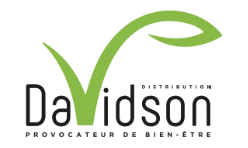How Steroids Can Help Athletes Improve Adaptation to Training and Stressful Workouts
Athletes at all levels are constantly seeking ways to improve their performance and reach their full potential. One method that some athletes turn to in order to enhance their training adaptations and cope with the demands of intense workouts is the use of steroids. While controversial, the use of steroids can provide significant benefits for athletes looking to push themselves to new heights.
What Are Steroids?
Steroids, also known as anabolic-androgenic steroids, are synthetic substances that mimic the effects of testosterone in the body. Testosterone is a hormone naturally produced by the body that plays a key role in muscle growth, recovery, and overall performance. By taking synthetic steroids, athletes can increase their testosterone levels beyond what is naturally possible, leading to enhanced muscle growth, strength, and endurance.
How Steroids Aid in Adaptation to Training
One of the primary ways that steroids can help athletes improve adaptation to training is by increasing protein synthesis in the muscles. Protein synthesis is the process by which the body builds new muscle tissue in response to the stress of training. Steroids can enhance this process, allowing athletes to recover more quickly from intense workouts and build muscle at a faster rate.
Additionally, steroids can help athletes retain nitrogen in their muscles, which is essential for maintaining a positive nitrogen balance. A positive nitrogen balance is crucial for muscle growth, as it indicates that the body is in an anabolic state where it is building and repairing muscle tissue. By keeping nitrogen levels high, athletes can maximize their muscle-building potential.
How Steroids Aid in Coping with Stressful Workouts
In addition to aiding in muscle growth and recovery, steroids can also help athletes cope with the physical and mental stress of intense workouts. When athletes push themselves to their limits in training, their bodies release cortisol, a stress hormone that can break down muscle tissue and hinder recovery. Steroids can help counteract the effects of cortisol by promoting muscle growth and reducing inflammation, allowing athletes to recover more quickly and continue training at a high intensity.

Furthermore, steroids can increase red blood cell production, which improves oxygen delivery to the muscles during exercise. This increased oxygen delivery can enhance endurance and delay fatigue, allowing athletes to push through tough workouts and perform at their best for longer periods of time.
Shop at uk steroid shop for reliable and discreet steroid purchases.
The Risks and Considerations of Steroid Use
While steroids can offer significant benefits for athletes, it is important to be aware of the potential risks and considerations associated with their use. Long-term steroid use can have negative effects on health, including liver damage, cardiovascular issues, and hormonal imbalances. Additionally, the use of steroids is banned in most sports organizations and can result in severe consequences for athletes who are caught using them.
It is essential for athletes considering using steroids to weigh the potential benefits against the risks and to consult with a healthcare professional before beginning any steroid regimen. Proper dosing, monitoring, and cycling of steroids can help minimize the risks associated with their use and maximize the benefits for athletes looking to improve their performance.
Conclusion
While the use of steroids is a controversial topic in the world of athletics, there is no denying the potential benefits they can offer for athletes looking to improve their adaptation to training and cope with stressful workouts. By understanding how steroids work and their impact on the body, athletes can make informed decisions about whether or not to incorporate them into their training regimen. Ultimately, the key is to prioritize safety, proper dosing, and monitoring when using steroids to ensure optimal results while minimizing risks.





















































































































































































































